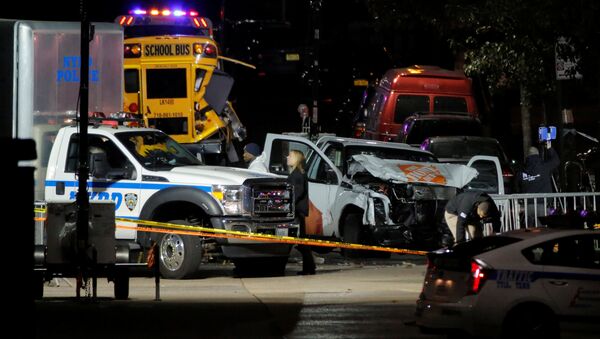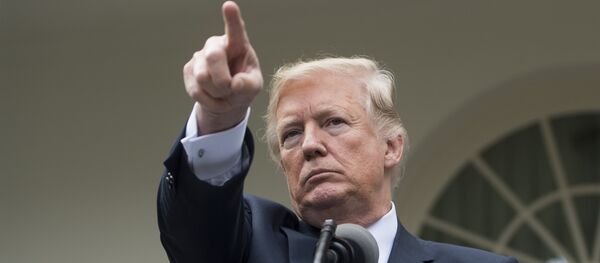City University of New York professor Danny Shaw told Loud & Clear that terrorism "is a product of US foreign policy." US Secretary of State Rex Tillerson and Defense Secretary James Mattis "just on Monday were advocating for the continuation of this global program where the US can go anywhere and accuse anyone of being a terrorist and intervene," Shaw said.
Referencing the Tsarnaev brothers, who carried out the April 2013 Boston Marathon bombing, "they said they were radicalized, not by [Daesh], but by US foreign policy in Iraq and Afghanistan. So as long as it continues to be genocide, invasion, recolonization of Libya, of Syria, of Iraq, of Afghanistan, of Palestine, we should almost expect this colonial boomerang of violence to swing back, the pendulum to swing back."
Sheehan said she was first struck by the quickness of media reports to call Tuesday's assailant an "Islamic terrorist," she said. "When [Stephen] Paddock killed 58 people in Las Vegas," the media referred to the killer as "disturbed," Sheehan observed, "because he was a white, American male." Sayfullo Saipov, a native of Uzbekistan who scribbled known Daesh pledges in a note left near the Home Depot truck he'd rented, murdered eight people and was almost immediately labelled a "terrorist."
Of course, being a terrorist and having a debilitating mental illness "are not mutually exclusive," John Kiriakou, co-host of Loud and Clear, noted.
The different responses to the October 1 shooting, which left 58 dead and injured hundreds more, and the October 31 vehicular attack has been staggering.
On October 4, three days after Paddock slaughtered seven times as many people as Saipov while injuring more than 500, US President Donald Trump insisted "we're not going to talk about that today" when asked about what laws could be passed to prevent mass shootings.
But Wednesday afternoon, within 24 hours of his act, the US charged Saipov with committing acts of terror, and Trump was already calling for legislation to be changed. Since Tuesday, Trump has demanded the government to step up its "Extreme Vetting Program" and tweeted that "CHAIN MIGRATION must end now!"
— Donald J. Trump (@realDonaldTrump) November 1, 2017
— Donald J. Trump (@realDonaldTrump) November 1, 2017
Expert Max Abrahms observed in August, following the murder of activist Heather Heyer in Charlottesville, Virginia, by an alleged far-right-sympathizer, "people generally use the term [terrorism] instrumentally, in order to delegitimize actors that they don't like. In authoritarian countries, for example, leaders will label all dissidents as ‘terrorists' whether or not they use violence. Academics, however, tend to agree on who is a terrorist and who is not based on this criterion: A terrorist is a non-state actor who uses violence against a civilian target for some kind of political goal."



